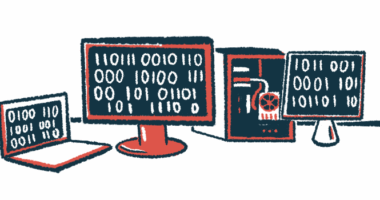Grieving the Loss of Abilities as My FA Progresses

It’s peculiar how much of life occurs in cycles.
One day I feel like I’m on top of the world, and a week later I’m lying in bed due to exhaustion or sickness.
One day I feel like I’ve learned so much and am excited to earn my degree, and a year later I’m working a job I never knew existed and feel like I have much to learn.
One day I can be talking with a loved one and sharing stories, and a week later I’m grieving the loss of that person and reminiscing on memories.
Grief especially seems to come and go in cycles. Of course, this is noticeable following the loss of life, but I’m also dealing with grief as I move through different phases of my Friedreich’s ataxia (FA) progression.
Reflecting on old times
A few of my friends have hit some major milestones recently. One got engaged, one started a dream job, and another bought their first house — all things I’ve experienced to some degree.
Hearing their stories and sharing in part of their journey makes me remember those seasons in my life, some of which occurred almost 20 years ago. I often reminisce with my friend who got engaged about the good old days of late game nights and silly laughs, the running and hiking adventures we’ve shared, and the good ol’ boys we used to hang out with.
All these great memories also remind me of what I used to be able to do.
Recognizing my changing abilities
At work, I often tell stories of jobs I held at the company years ago — jobs I wouldn’t be able to physically handle today.
Someone recently asked me what I did for work before joining Nugget Markets, a California-based supermarket chain, in 2009. Between decisions I had made and the crashing economy of the Great Recession, I had been waiting tables — something I hadn’t done since college. Today, I can barely carry my own glass of water across the living room, much less a full tray of drinks across a busy and crowded restaurant.
A few years ago, if a guest in the grocery store asked me to grab something for them, I’d speed walk to get it, hustle back, and get them on their way, no walker or other aid necessary.
Every year, I emcee one of our company’s biggest annual events. Sure, I stammer a bit on stage, and it’s obvious I have some balance issues, but it’s never been a big deal or hindered my involvement. But last week, I emceed that event for the fifth year in a row, and found myself hanging on to the podium the entire time, never leaving my self-declared safe zone.
Coping with grief and loss
Waiting tables was fun at the time. Running all over the grocery store, climbing up and down ladders, and carrying bulky items without assistance was rewarding when I could do those things. Emceeing events and moving around the stage has always been energizing.
However, as my progression continues and my abilities change, it seems I’m grieving more regularly. Some of my adventures, jobs, and responsibilities have added to my identity. It’s not easy to realize that I likely won’t do these things again, at least not in the same way.
As I come to terms with these changes that can quickly make me sad, I’m also reminded of how unique or significant those experiences were at the time. I’m reminded of the powerful friendships that have developed over the years, and the many different seasons I’ve been blessed to live through. And ultimately, I’m reminded of the importance of gratitude.
Some of the losses I experience make me sad, frustrated, and angry. My disappointments are real and valid, but I don’t believe they are an excuse for not adapting and moving forward. Rare disease or not, everyone will face disappointments. How we respond determines how far we can go.
I’d love to hear how others grieve, wrestle with, and overcome their disabilities, both mentally and physically. If you have FA, how have you responded to the loss of abilities? Please share in the comments below.
***
Friedreich’s Ataxia News is strictly a news and information website about the disease. It does not provide medical advice, diagnosis or treatment. This content is not intended to be a substitute for professional medical advice, diagnosis, or treatment. Always seek the advice of your physician or another qualified health provider with any questions you may have regarding a medical condition. Never disregard professional medical advice or delay in seeking it because of something you have read on this website.The opinions expressed in this column are not those of Friedreich’s Ataxia News or its parent company, Bionews, and are intended to spark discussion about issues pertaining to Friedreich’s ataxia.








Loz Hunter
How do you deal with the anger and frustration of losing abilities? I feel that I'm lashing out at the ones I love and I'm locking my self away from the outside world.
Sean Baumstark
Hi Loz! I must admit, some of the delay in this reply is because your question scared me - it hit home. I, too, have found myself getting irritated and lashing out at the wrong people for the wrong things. I don't know the answer. However, something I've been doing lately is intentional reflection on a daily basis. In this process, I examine the feelings that I felt throughout the day - happiness, anger, irritation, etc.. Then I ask myself "why" and work toward the root of that feeling. If I was irritable, was it because someone did something they know annoys me, or was it because I ran out of patients when my symptoms were flaring up? I write these things down. Althoughn this process does not fix anything on its own, being intentional here helps keep these scenarios front of mind which has helped me pause in real time (when I get irritated) and ask myself, "Is this a fair level of irritation or do they just not realize how [this] effects me?" I also find it helpful to talk openly with those close to me about my frustrations and the sadness associated with FA. This is often eye-opening for them and it gives them permission to remind me when I'm unfairly being a butt toward them. PLEASE, if you find other things to be helpful, let me know! I feel that we're both in the same boat on this one.
Eric Bermudez
Hi Sean,
As of today,(10/13/2021) I'm a 58 year old male with FA. I was diagnosed at 15 & have many sad looses/setbacks, aside from being wheelchair bound by 22 my typing has gotten down to one finger! You're correct Sean we need gratitude for our freedoms & God's mercy & grace.
Sean Baumstark
Hi Eric - I'm sorry for the delay here but I am grateful for your comment! You've got a handful of years on me which I find encouraging. If you can move forward, despite the sadness and setbacks, why can't I? Thank you for reading and not letting your one-finger-typing become an excuse for not sharing!